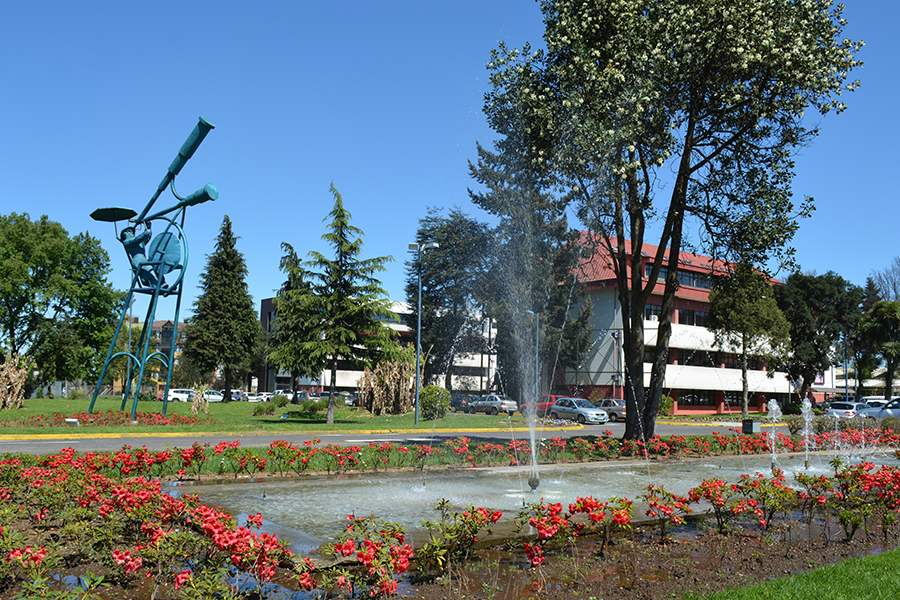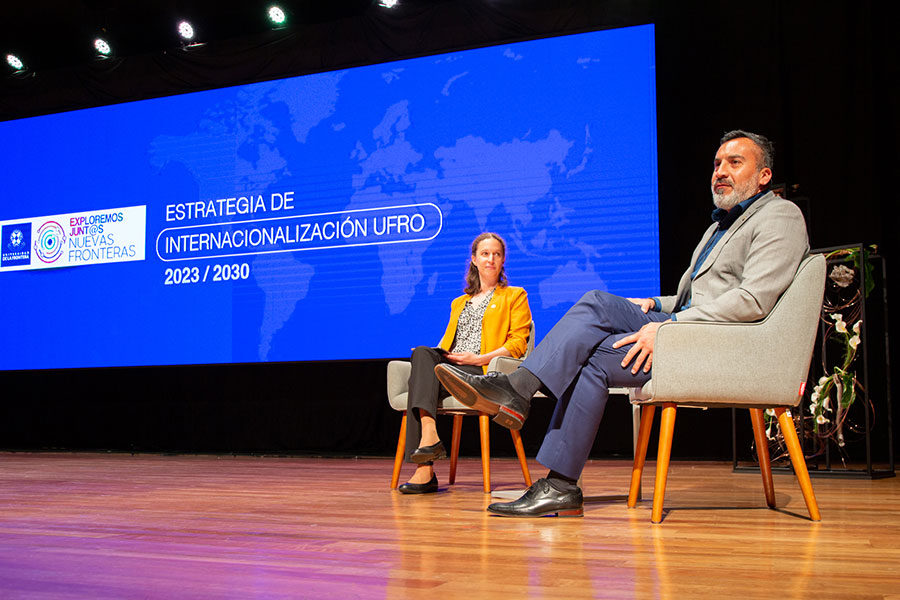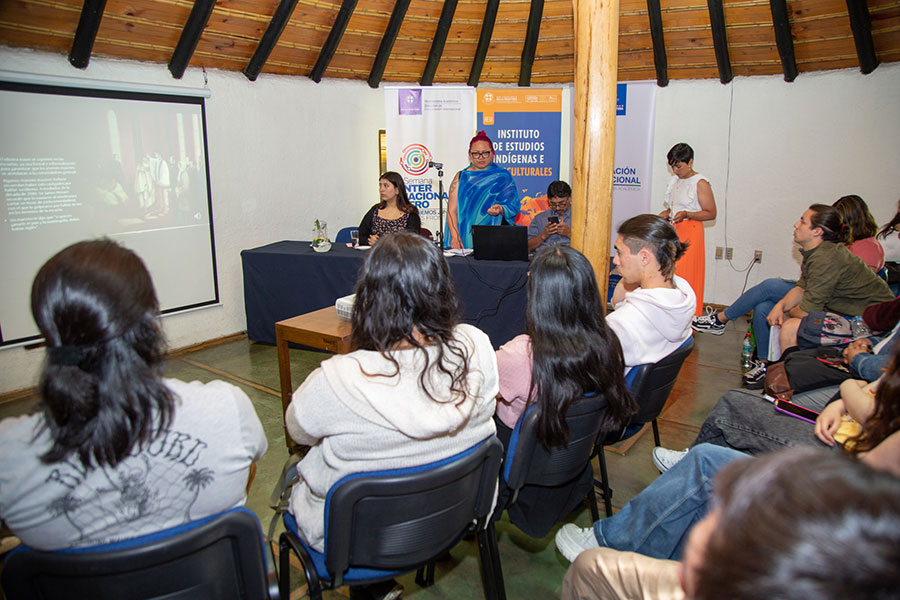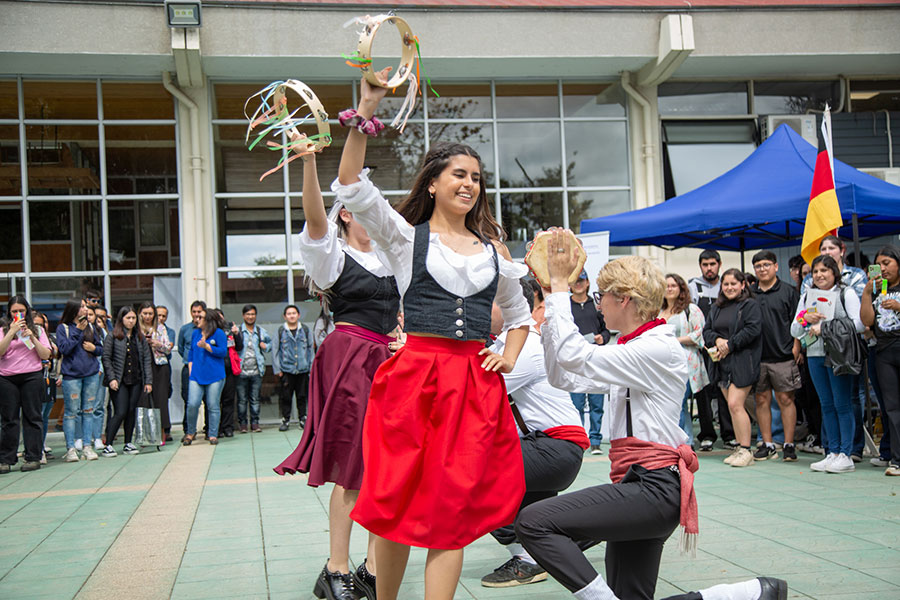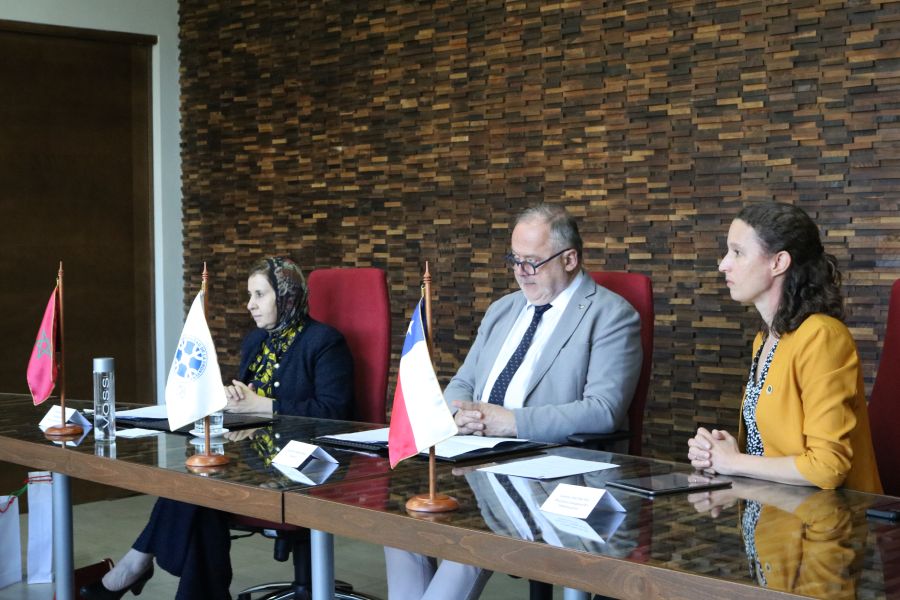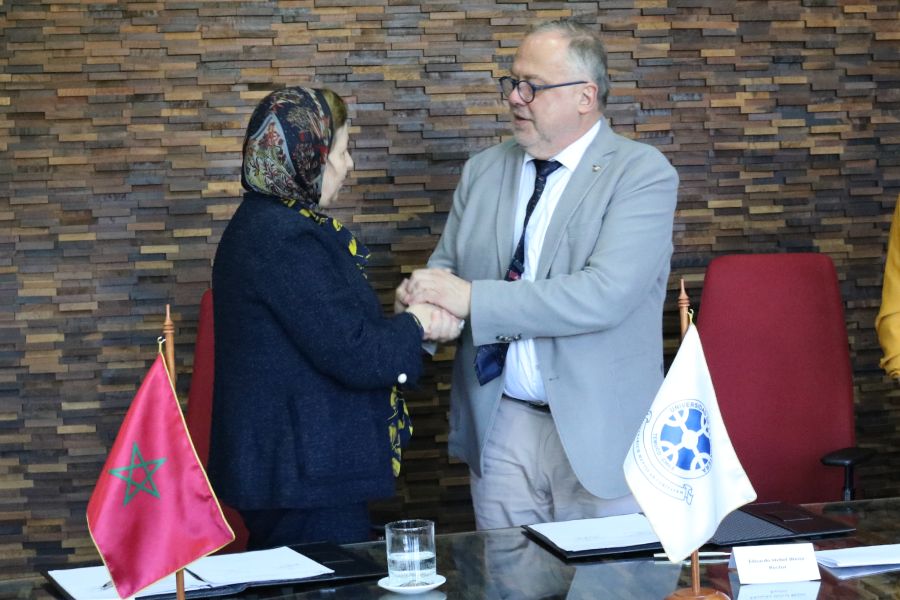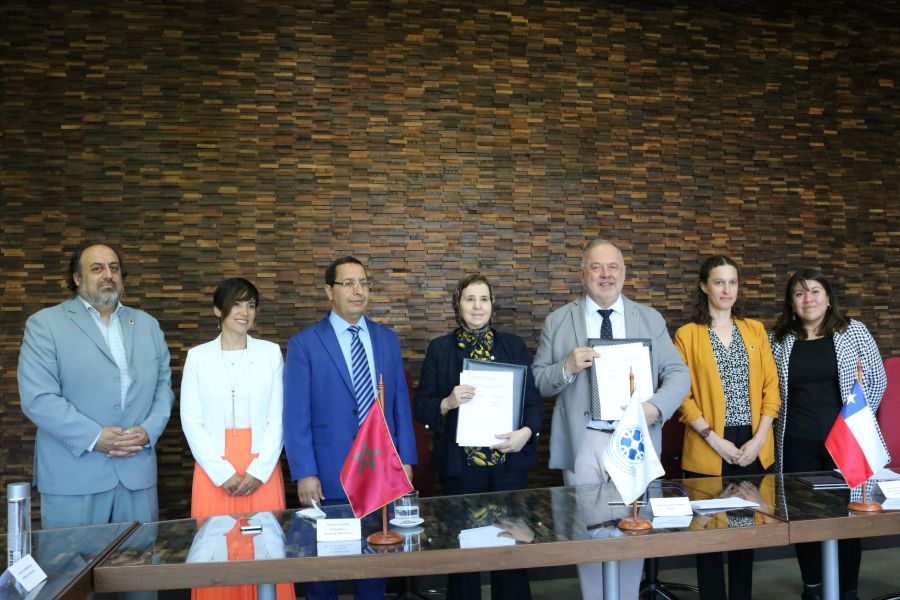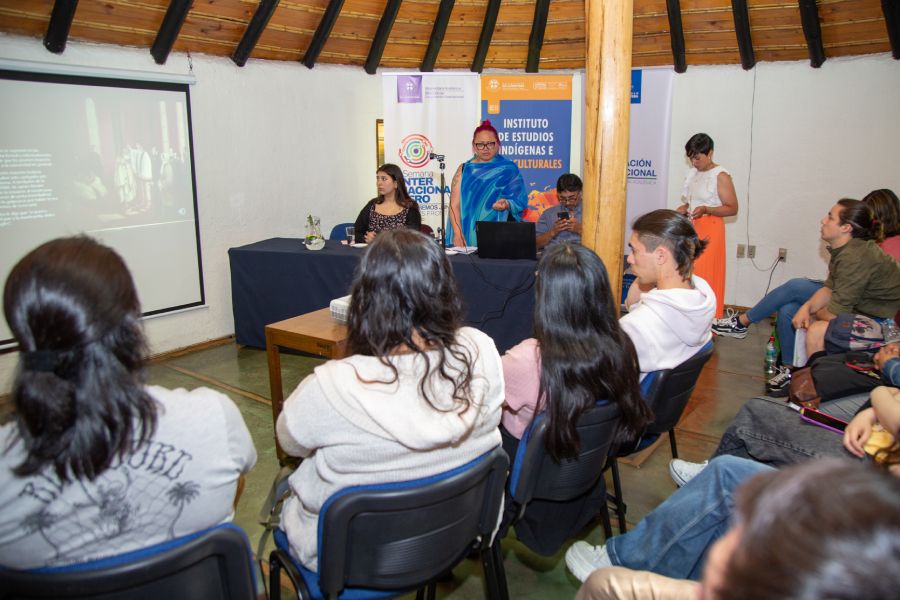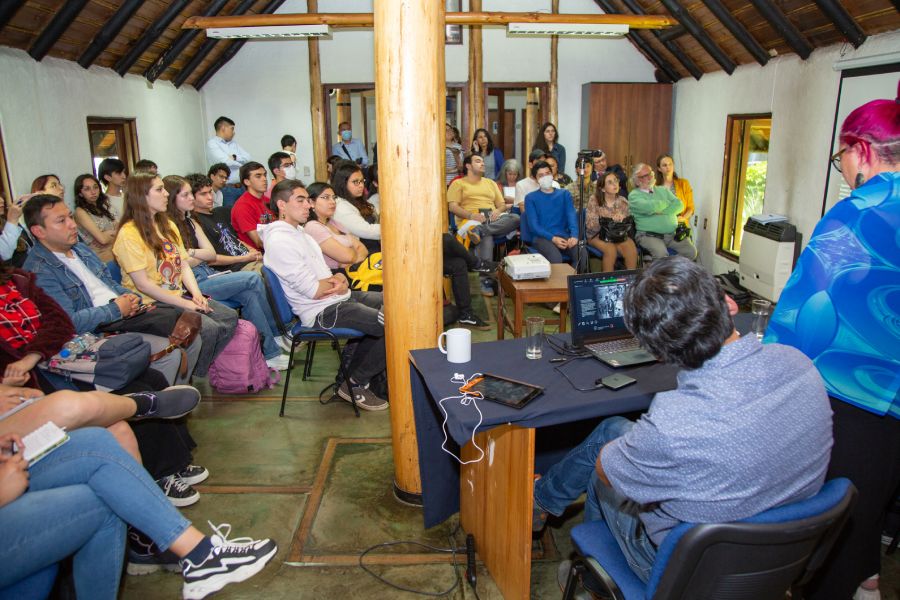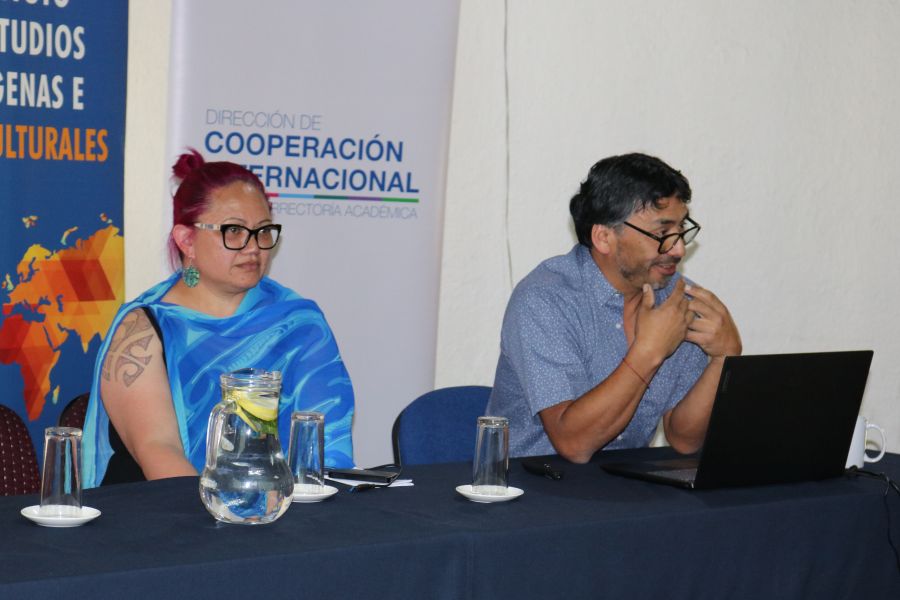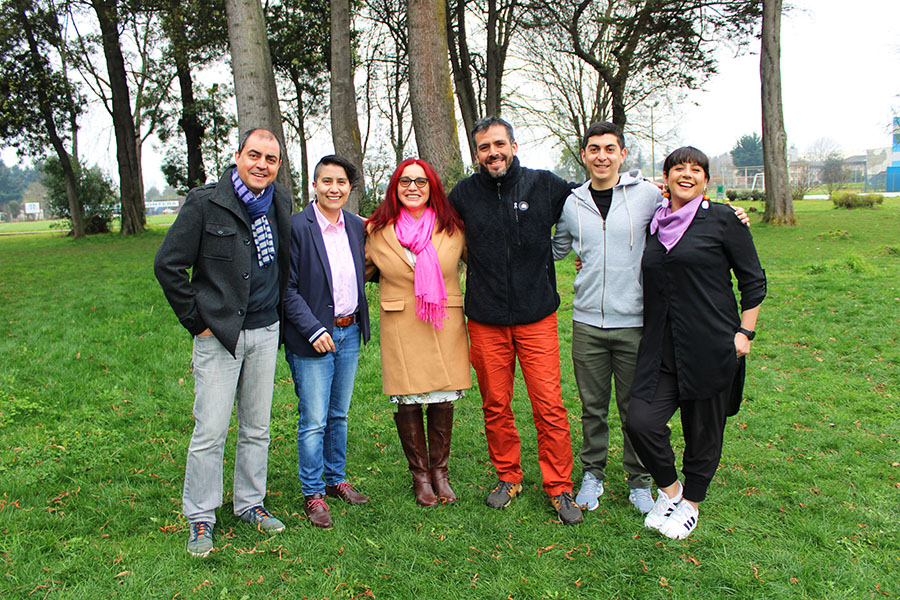|
Universidad de La Frontera got 24 project proposals approved in the FONDECYT Initiation Projects competition of the Chilean National Research and Development Agency (ANID). |
“We are proud of this remarkable result,“ said Dr. Rodrigo Navia Diez, the vice-rector for Research and Graduate Studies of Universidad de La Frontera (UFRO) regarding the results of the latest FONDECYT Initiation Projects competition, in which the university is in 4th place out of 51 at the national level and in 2nd place among the state universities. “This does not only position us among the best universities in Chile, it also allows us to support our young researchers in almost all fields of knowledge,” the university authority added, considering that the projects are from 16 different groups of studies, four of them in inter- and transdisciplinary fields of research. The research director, Dr. María Elena Arias, recognized and appreciated the efforts and persistence of the researchers who presented their initiatives in the different fields of knowledge and who made this great position of UFRO possible. “The 24 approved projects of our researchers show the success of the measures and support by the Vice-rectorate for Research and Graduate Studies, implemented directly or indirectly through the Research Office. At the Research Office, we want to congratulate the ones who are taking on this new challenge over the next three years,” she concluded. APPROVED PROJECTS
Source: Vice-rectorate for Research and Graduate Studies, UFRO |
|
The first International Week of Universidad de La Frontera brought a high number of participants together in different activities and allowed visualising the internationalisation development of the university. |
“We presented our Internationalisation Strategy UFRO, with which we want to strengthen our partnerships, establish new alliances, connect with other entities and find our common interests in order to grow and keep developing and strengthening our university in the international context,” said Dr. Eduardo Hebel Weiss, the Rector of the Universidad de La Frontera (UFRO), at the inauguration of the International Week UFRO. The event, organised by the Vice-rectorate for Academic Affairs and the International Affairs Office of UFRO, invited the different units and actors to be part of the programme full of activities related to institutional internationalisation. The Vice-rector for Academic Affairs, Dr. Renato Hunter Alarcón, pointed out that UFRO has very strong partnerships throughout the world. “We do have the required vision, effort and dedication to create strong links across our borders and we will keep working on that, promoting respect and support across the nations,” he commented. In this context, he estimates that the 260 agreements in force with 179 different institutions might multiply over the next years, promoting and strengthening the mobility and collaborative work with academics from different countries in Europe, such as the Netherlands, Serbia and Lithuania, etc. INTERNATIONALISATION STRATEGY UFRO In a collaborative effort, the Vice-rectorate for Academic Affairs and the Vice-rectorate for Research and Graduate Studies carried out workshops and training sessions in collaboration with the International Affairs Office and the Office for Innovation and Technology Transfer. In addition, the university established a Commission to work on the guidelines. The new Internationalisation Strategy will support initiatives from 2023 to 2030 in the fields of excellence in graduate studies with an international vision, research and innovation with territorial relevance, internationalisation of the curriculum, and academic mobility. In this context, Dr. Lorena Vieli, the director of the International Affairs Office, pointed out: “With these strategies, we are able to define the role of internationalisation and the participation of the related units and their contributions. The preparation process not only led us to the official Internationalisation Strategy, but also helped us to further develop our skills and capacities.” Franklin Valdebenito Godoy, the director of the Office for Innovation and Technology Transfer, added that the process has been very significant, “because it has allowed us to include the vision of the Vice-rectorates, to have a shared vision and to strengthen different areas. Now, our task is to strengthen the pillars of internationalisation and to drive the work forward”. OPPORTUNITY FAIR One of the activities carried out during the International Week UFRO was the Opportunity Fair with 20 stands with information on study and internship opportunities abroad, academic mobility programmes, as well as international initiatives and organisations. The Vice-rector for Administration and Finances, Jorge Petit-Breuilh Sepúlveda, commented: “Since 2021, we are planning the construction of different infrastructures. We already have three major projects: one has to do with a sustainable campus, another one with a smart campus and the third one is the idea of a Citizens Square to promote the unity and fellowship within the university community.” “Each of these challenges,” he explained, “helps us to develop projects that go in line with standards of sustainability and functionality, and to create physical spaces of encounter and connection that also allow us to position ourselves in the international context.” CULTURE AND ACTIVITIES The programme of the International Week UFRO included talks and international networking opportunities with the participation of national and international guests and student groups, cultural activities, international films, etc. A delegation from the University Te Wānanga in New Zealand participated in a talk about intercultural education that was organized by the Faculty of Education, Social Sciences and Humanities and the Institute for Indigenous and Intercultural Studies of UFRO. At the same time, several other international experts held talks and seminars at the doctoral level, to strengthen the fields of high-impact research and international projects. In addition, the university community had the chance to enjoy the international cinema, the Science Café, and different encounters and learning opportunities. With regard to the internationalisation of the curriculum, the university organised a COIL – Collaborative Online International Learning – workshop to continue strengthening that methodology that allows connecting different programmes and subjects with teachers from all over the world. This activity was organised with the support of the Vice-rectorate for Undergraduate Affairs and the Office of Curricular and Teacher Development. CRUCH MEETING At the same time, within the framework of the first International Week UFRO, the Internationalisation Committee of the Council of Rectors of Chilean Universities (CRUCH) met at UFRO for its plenary session. One of the topics addressed at this meeting was the experience of the University of Göttingen in Germany and the University of Talca in Chile in the project ‘LiveSciences3 - transnational and digital linked life sciences’. Other important parts of the programme of the International Week UFRO were the presentations of DAAD and DAHZ, the celebration of the tenth anniversary of the German-Argentinean University Centre, a discussion on collaboration perspectives and possibilities for Chilean and German universities, and the workshop ‘Internationalisation practices at home: bringing together different world knowledge’. Written and translated by: UFRO Communications Office
|
|
UFRO signs agreement with Embassy of Kingdom of Morocco and establishes its first alliance with the African continent |
The official signing of the agreement between UFRO and the Embassy of the Kingdom of Morocco took place in presence of the Ambassador of the Kingdom of Morocco, Kenzha El Ghali; the cultural attaché, Ahmed Ait Belaid; the Rector of Universidad de la Frontera (UFRO), Dr. Eduardo Hebel; the director of UFROs International Affairs Office, Dr. Lorena Vieli; and the director of UFROs Office of Libraries and Information Resources, Dr. Carlos Del Valle. The aim of the agreement signed at the meeting, where also Paulina Latorre, the coordinator of Internationalisation at UFRO, and María Paz Collío, who is in charge of International Agreements, were present, was to establish the general bases for academic, cultural and scientific cooperation, as well as the relationship regarding the fields teaching, research and dissemination of knowledge and culture. The Rector of UFRO, Dr. Eduardo Hebel, stressed that “this agreement formalises our first alliance on the African continent and will allow us to be ambassadors of the Moroccan culture in the south of Latin America”. Apart from the agreement, at the meeting they also addressed the exchange possibilities for academics, researchers and students through the implementation of projects of mutual interest. According to Kenzha El Ghali, the Ambassador of the Kingdom of Morocco, the relationship started six years ago. “This is not the first time that I visit this university, on the contrary; we see it as an embassy in the south of Chile that disseminates our culture and civilisation”, she pointed out. This agreement is the result of a great cooperation. “We are the first and only country in Africa that has an agreement with UFRO and we will continue to strengthen this relationship in order to meet our goals regarding student and academic exchange and to add internship opportunities in cooperation with Moroccan universities in the future”, the Ambassador added. SPECIFIC AGREEMENT Apart from the general agreement, another specific agreement was signed with the Doctorate in Communication of UFRO, which is led by Dr. Carlos Del Valle. This agreement formalises the creation of a ‘Moroccan Chair’, which will promote the study, knowledge and dialogue with the African country, as well as future projects and partnerships in other parts of the continent. In this context, Dr. Carlos del Valle commented that the first exchange of students took place in 2018, within the framework of a seminar with Chilean and Moroccan academics. “Within the Doctoral Program in Communication of UFRO, we saw the opportunity to start a chair that would work as an initiator of partnerships and possibilities in other fields and for other academic units of the university,” Dr. del Valle explained. Apart from that, another aim of this specific agreement is the collaboration and cooperation regarding publications, meetings, congresses and the exchange of literature, among others.
Written and translated by: UFRO Communications Office
|
|
The experts analysed different historical contexts and intercultural dynamics, from the revitalisation and recognition of the Māori language, to the historical, social and political development regarding the Mapuche People in Chile. |
Last week, the Universidad de La Frontera (UFRO) celebrated its International Week and one of the activities was a talk about ‘Interculturality: local and international experiences’ with the participation of Mihaere Emery from Te Wānanga o Aotearoa University in New Zealand and the academic Miguel Melín Pehuen of the Institute for Indigenous and Intercultural Studies (IEII) of UFRO in Chile. During the conversation, which was organised by the International Affairs Office and the Institute for Indigenous and Intercultural Studies at UFRO, the experts analysed the historical contexts and intercultural dynamics, from the Māori revitalisation and the recognition of their language, to the historical, social and political relations between the Chilean state and the Mapuche People. Dr. Guillermo Williamson Castro, an academic of the UFRO Department of Education, was in charge of the coordination of the activity. He commented: “Within the fields of Rural Education and Intercultural Education, we received the delegation from Te Wānanga o Aotearoa University in New Zealand, with the aim of establishing conversations between the different cultures around the world. Our idea is that the Mapuche People learn from the Māori People and vice versa.” “We are working on an agreement for next year that will allow student and academic exchange, as well as different collaborations in the fields of graduate studies, continuous education, research and publications,” Dr. Williamson added. THE SPEAKERS According to Mihaere Emery of Te Wānanga o Aotearoa University in New Zealand, the delegation is here to exchange knowledge. “It has been a very interesting experience, and we have been able to share our Māori culture and knowledge. It is very positive that this kind of initiative exists, since it is a starting point that allows a rapprochement of cultures.” Miguel Melín Pehuen pointed out: “The contextualization of the Chile-Mapuche relationship on the basis of the historic development and the occupation of the land is key to understand the interethnic and intercultural relations over time.” In this context, according to him, the visit of the Māori delegation was very important, since “we can learn a lot from them and their relation with the state. There is no other indigenous people that has international treaties, both with the Crown and the state, and they managed to promote their culture with this recognition.”
Written by: UFRO Communications Office
|
|
The objective of the Physical Literacy Research Centre is to study the variables that have an impact on the interest in practising physical activity throughout all stages of life. |
The Faculty of Education, Social Science and Humanities (FECSH) of the Universidad de La Frontera (UFRO) has a new Research Centre for Physical Literacy. The multidisciplinary team consists of academics from several national and international universities who have been working on different projects in this field of knowledge, but from different perspectives, which come together in this new Centre, in order to improve people’s quality of life from a holistic view. “The idea of creating our Physical Literacy Research Centre originated in the need to study the variables that are linked with the interest in practising physical activity permanently and throughout all stages of life. We want to approach the issue from a holistic point of view, where we consider not only the physical perspective, but also psychological, cognitive and social factors regarding the adherence to physical activity,” explained Dr. Jaime Carcamo Oyarzun, the director of the Physical Literacy Research Centre (CIAM). Taking into account that the concept of Physical Literacy is a globally emerging approach that has not yet been disseminated in the Spanish-speaking parts of the world, CIAM will be a pioneer in the study of this issue. In this context, Dr. Carcamo explains: “We hope that the knowledge we generate will position our Faculty and our University as a national and international reference in this field. It is worth mentioning that the members of the research team of CIAM already develop their lines of research at a high level, for example within their Diufro, Fondecyt, or INES projects, among others. That is why we will always try to make sure that our research at CIAM has a high impact.” CIAM OUTREACH AND COMMUNITY ENGAGEMENT The objective of CIAM is not only to study the dimensions related to Physical Literacy, but also to ensure that the findings from the research will have a direct impact on the population. Once CIAM gathers the data and establishes an approach regarding the regional and national context, the team of researchers will develop interventions adapted to the local social reality, in order to create a positive impact on the development of Physical Literacy. In this context, Dr. Carcamo pointed out: “We will provide trainings for teachers and other actors related to this field, in order to update the teaching practices and to give them the tools to adapt and further develop their teaching skills within our context, for the development of Physical Literacy.” FUTURE CIAM-UFRO PROJECTS The first objective is to position the Physical Literacy approach in the national and international context. Therefore, the researchers will carry out a systematic review of the existing literature, which will be a starting point for the development of the first CIAM-UFRO project. The initial aim is to establish a national consensus on the concept and structure of Physical Literacy, since one of the important aspects for the development of this field is that everybody agrees on the fundamental aspects, addressing the topic from the local realities. “On November 17, we will carry out a seminar about the current situation and future perspectives of physical education, with a main focus on the development of Physical Literacy. The participants and speakers of this seminar come from different parts of Chile, Spain and Switzerland. They are all working on development proposals in this field, and will participate in scientific meetings for each of the lines addressed by the centre,” the director of CIAM explained.
Written by: Claudia Palacios Arriagada, |





